| |
|
|
|
| |
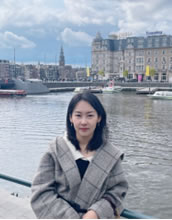 |
Dr. Can Cui is a professor in the Department of Human Geography, the School of Geographic Sciences at East China Normal University (ECNU). She also serves as the Director of the Future City Lab and an adjunct researcher at the Center for Modern Chinese City Studies at ECNU. Dr. Cui holds a Ph.D. in Human Geography and Spatial Planning from Utrecht University, an MA in Geographic Information Science from Nanjing University, and a BA in Geographic Information Science from Hunan Normal University. Prior to joining ECNU, she worked as a Pollman Fellow in the Graduate School of Design at Harvard University. |
|
| |
|
|
| |
Her primary research interests lie in the field of housing studies and population migration. Against the backdrop of China’s rapid urbanization, housing marketization, and significant population movements, her work focuses on housing differentiation and human capital migration amid the country’s socio-economic transformation. Recently, her research has concentrated on issues such as housing wealth inequality, intergenerational transmission of housing inequality, and the dynamics of talent migration in China. Her research has been funded by the National Natural Science Foundation of China (NSFC), the International Collaborative Program of NSFC, the Key Project of Shanghai Municipality for Soft Science, and the California Union-Harvard Cooperative Research Program. She has authored two books on housing and published her research in leading academic journals such as Urban Studies, Environment and Planning A, Cities, Housing Studies, International Journal of Housing Policy, Sociological Studies, and Acta Geographica Sinica in both English and Chinese. Dr. Cui is also actively involved in professional communities. She serves on the Editorial Board of Humanities and Social Sciences Communications, is a Board Member of the International Sociology Association RC 43 Housing and Built Environment, and is a committee member for Territorial Spatial Planning at the Chinese Society of Natural Resources. |
|
| |
|
|
|
| |
 |
Dr. Jianping Gu obtained her Master’s and Ph.D. degrees in Urban Economics from the Urban Analysis Laboratory at the Graduate School of Frontier Sciences, University of Tokyo, Japan. Since 2017, she has been working at the School of Management Science and Real Estate, Chongqing University, where she currently serves as an Associate Professor and Ph.D. supervisor. She is also a board member of the China Land Economics Society and the Chongqing Geographical Society.顾渐萍于日本东京大学前沿科学大学院城市解析实验室,获取城市经济学研究方向的硕士和博士学位。2017年至今,任职于重庆大学管理科学与房地产学院,现任副教授、博士生导师。兼任中国国土经济学会理事、重庆地理学会理事。 |
|
| |
|
|
| |
With an interdisciplinary educational and research background spanning geography, management, and regional/urban economics, Jianping Gu is dedicated to addressing issues related to regional development and urbanization governance. Her research explores the spatiotemporal complexity of cities, focusing on themes such as spatial decision-making under uncertainty, 3D urban spaces, and the complexity of urban innovation. She has led over ten national and provincial research projects, including two National Natural Science Foundation projects. Her publications are in high-impact international journals in the field of regional and urban studies, such as Humanities & Social Sciences Communications (a sub-journal of Nature), Landscape and Urban Planning, and Cities. She has been invited to present at various international conferences and universities, frequently serving as a session chair and expert panelist.基于地理学、管理学和区域/城市经济学交叉的教育研究背景,致力于解决区域发展与城镇化治理问题,顾渐萍围绕城市时空复杂性开展研究(包含不确定下的空间决策、三维城市空间与城市创新复杂性等主题)。主持国家及省部级科研项目十余项, 其中包括主持国家级自然科学项目2项。取得了丰富的学术成果,以第一/通讯作者身份在Nature旗下人文社科子刊《Humanities & Social Sciences Communications》、 城市领域国际top期刊《Landscape and Urban Planning》、《Cities》等国际高水平期刊上发表论文二十余篇。 |
|
| |
|
|
|
| |
 |
Mingzhi Hu is an Associate Professor at the School of Management, Zhejiang University of Technology, and a Special Associate Researcher at the Housing and Urban-Rural Development Research Center, Shanghai Jiao Tong University. He is also the Secretary of the Forum for Young and Middle-aged Scholars in Chinese Real Estate and a member of the Youth Committee of Urban Sustainable Construction and Management, Chinese Urban Economics Association. He previously taught at Jinan University (2018-2021), earned a Ph.D. from Shanghai University of Finance and Economics (2015-2018), and studied at Florida International University as a joint Ph.D. student (2016-2017). Additionally, He was a visiting scholar at the University of Queensland Business School from August 2023 to August 2024. |
|
| |
|
|
| |
My primary research interests encompass housing and real estate economics, urban economics, and entrepreneurship. I have published over 50 papers in academic journals, including the Journal of Business Venturing, Journal of Banking & Finance, Real Estate Economics, Journal of Real Estate Finance and Economics, Journal of Housing Economics, Journal of Real Estate Research, Small Business Economics, Technological Forecasting and Social Change, and Finance & Trade Economics. As a principal investigator, I have led several national and provincial-level research projects, such as the National Natural Science Foundation of China and the Guangdong Natural Science Foundation. I serve as an anonymous reviewer for numerous journals, including the Journal of Business Venturing, Small Business Economics, Journal of Real Estate Research, Journal of Development Economics, Urban Studies, Housing Studies, Technological Forecasting & Social Change, International Journal of Finance and Economics, China Economic Quarterly, and Management Review. Additionally, I hold editorial positions as the Editor-in-Chief of the Journal of Regional Economics, Guest Editor for the Journal of Risk and Financial Management, and serve on the editorial boards of the Journal of Real Estate Research and SN Business & Economics.我的主要研究方向包括住房与房地产经济、城市经济和创业。在Journal of Business Venturing、Journal of Banking & Finance、Real Estate Economics、Journal of Real Estate Finance and Economics、Journal of Housing Economics、Journal of Real Estate Research、Small Business Economics、Technological Forecasting and Social Change以及财贸经济等学术期刊上发表了50多篇论文,主持了国家自然科学基金青年项目和广东省自然科学基金面上项目等国家级和省部级课题。担任Journal of Business Venturing、Small Business Economics、Journal of Real Estate Research、Journal of Development Economics、Urban Studies、Housing Studies、Technological Forecasting & Social Change、International Journal of Finance and Economics、经济学(季刊)和管理评论等期刊的匿名审稿人,并担任Journal of Regional Economics期刊主编、Journal of Risk and Financial Management期刊客座主编,以及Journal of Real Estate Research和SN Business & Economics期刊的编委。 |
|
| |
|
|
|
| |
 |
Dr. Cheng Liu (刘成) is an Associate Professor at the China University of Geosciences (Wuhan). He holds a Ph.D. in Geography from the University of Auckland, as well as Master’s and Bachelor’s degrees in Land Resources Management from China University of Geosciences (Wuhan). |
|
| |
|
|
| |
Dr. Cheng Liu's research focuses on gentrification, urban micro-simulation, and GeoAI. First, he challenges existing theories of gentrification and enriches the field with new research methods, theoretical frameworks and practices. His paper published in Geoforum argues that the flows of capital, people, and knowledge provide a foundation for a holistic theory of planetary gentrification and a vital reference point for comparative studies. He also evaluates rent gap theory, a supply-side explanation of gentrification (published in Urban Geography), explores the genesis of the rent gap (published in Environment and Planning A: Economy and Space), and offers novel insights into political praxis to redress social injustice in gentrification (published in Tijdschrift voor economische en sociale geografie). These studies enhance both theoretical and empirical understanding of gentrification. Second, he transcends the boundaries of supply-side and demand-side theories and simulates the spatiotemporal process of gentrification. His contribution to Computers, Environment and Urban Systems links the housing life cycle (Cellular Automata) with household life cycle (Agent-based Model) and reveals the impact of various modes of interaction between the two on the spatial patterns of housing and households. This research provides a more comprehensive view of the spatiotemporal evolution of gentrification.Third, he advances the identification of gentrification via AI and big data. He compares the advantages and disadvantages of threshold-based method and a machine-learning approach using socio-economic status data. Moreover, he proposes a flexible GeoAI framework for mapping property redevelopment. This model integrates computer vision of street view imagery with the patterns and processes of urban redevelopment via deep convolutional neural networks and spatiotemporal neighborhoods. This line of inquiry opens new avenues for future research in gentrification and GeoAI. Additionally, he has secured significant funding for his research, including grants from the National Natural Science Foundation of China and other prestigious organizations. |
|
| |
|
|
|
| |
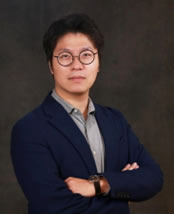 |
Dr. Xuanyi Nie is an Assistant Professor in the Department of Urban and Regional Planning at the State University of New York, Buffalo (University at Buffalo). Between September 2021 and August 2023, she was a postdoctoral fellow at the Harvard T.H. Chan School of Public Health, during which he also taught at the National University of Singapore and Roger Williams University. He has practiced architecture, urban design, and planning consultancy in China, the United States, and UN-Habitat in Kenya. He received a Doctor of Design in Urban Studies, a Master of Architecture from Harvard University Graduate School of Design, and a Bachelor of Architectural Studies from Victoria University of Wellington in New Zealand. |
|
| |
|
|
| |
Xuanyi is interested in the dynamics of power and agency in shaping equitable and healthy urban futures. His scholarship specifically explores healthcare actors and the institutional and social forces in urban and community development, spanning China, North America, and Southeast Asia. His research has explored how healthcare policies and economic pursuits intersect and translate into the autonomy of entrepreneurial healthcare actors in urban development in the United States and China. Specifically in China, while the state could use market legitimacy to leverage the private sector to address crises in healthcare reform, the private sector could also strategically partner with public institutions such as hospitals and universities to hijack the state’s pursuits for speculative development (Urban Studies, 2023; Urban Geography, 2024). Parallel to this, he has investigated the roles of medical institutions in regional development (Regional Studies, 2024; Applied Geography, 2024). These studies yielded important insights into the inequality of healthcare infrastructure and the economic and social privileges given to certain institutional and social groups. These findings then stimulated him to further inquire into equitable opportunities in community development across different socioeconomic contexts, including the governance and empowerment of urban communities (Population, Space and Place, 2023; Urban Research & Practice, 2021), power dynamics in community development (Urban Geography, 2024; Cities, 2024), and community well-being (BMC Public Health, 2024; Applied Research in Quality of Life, 2023). An important component of his current work is launching social experiments in partnership with community members and assessing their impacts on community well-being, particularly for the elderly. Due to a background in architecture and design, space matters to him. One of Xuanyi’s career goals is to integrate the praxis of space and design into my research inquiries. |
|
| |
|
|
|
| |
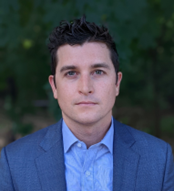 |
Jesse Rodenbiker is an assistant teaching professor of geography at Rutgers University-New Brunswick. Rodenbiker has served as an Associate Research Scholar at Princeton University with the Center on Contemporary China, an Atkinson Postdoctoral Research Associate in Sustainability with the Department of Natural Resources and the Environment at Cornell University, and as a Visiting Scholar at Sichuan University in the School of Public Administration and Department of Land Resource Management. He holds a doctorate in Geography from the University of California, Berkeley. |
|
| |
|
|
| |
Rodenbiker is a human-environment geographer and interdisciplinary social scientist focusing on environmental governance, urbanization, and social inequality in China and globally. Rodenbiker is the author of the open-access book Ecological States: Politics of Science and Nature in Urbanizing China (2023, Cornell University Press), which draws on long-term fieldwork in southwest Chinese cities to examine how ecology has become instrumental to state power, urbanization, and involuntary resettlement. Additionally, he has publications on the history of China's ecological thought and ecological civilization building (Annals of the American Association of Geographers, 2021), peri-urban ecological migration, conservation planning, and displacement (International Journal of Urban and Regional Research (2020), volumetric politics of urban-rural transitions (Geoforum 2019), withdrawal from rural homesteads (Land Use Policy 2021), and the need to prioritize social justice in China's city planning (Transactions in Planning and Urban Research, 2022). Recently, Rodenbiker has turned attention to examining relationships between the politics of urban consumption and biodiversity loss at sea in his project titled Urban Oceans: Centers and Edges of a Sustainable Marine Wildlife Trade. Related works have delved into high-value seafood commodity trade and transitional social values in Hong Kong (Urban Geography, 2024), Chinese-language market labelling and sea cucumber trade (Sustainability, 2024), socio-ecological dynamics between urban shark fin markets and Mid-Atlantic fisheries (Ecology and Society, 2023), as well as the classed, gendered, and racialized relationships between the city and the sea (Environment and Planning E: Nature and Space, 2023). Finally, Rodenbiker is pursuing research on global China and the environment with publications on green BRI infrastructure in the Global South (Critical Asian Studies, 2023), China's green soft power (The Wilson Center, 2023), as well as geopolitical imaginaries of Chinese investment and their role in fomenting populist coalitions and a new red scare across the U.S. (Political Geography, 2024). Rodenbiker is a member of the National Committee on US-China Relations. |
|
| |
|
|
|
| |
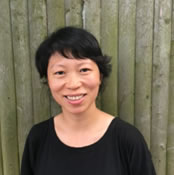 |
Dr. Amy Zhang is Assistant Professor in the Department of Anthropology at New York University. From 2016-2017, Zhang was the An Wang Post-Doctoral Fellow at the Fairbank Center for Chinese Studies at Harvard University. She holds a PhD in the joint program in Anthropology and Forestry and Environmental Studies from Yale University. |
|
| |
|
|
| |
As a sociocultural anthropologist and political ecologist, Zhang’s research investigates environment, technology, labor, and urban life. In particular, her work is interested in how the deployment of environmental technologies intersects with ongoing dynamics of urbanization and development, and how citizens come to intervene in the state’s techno-scientific projects. Her first book Circular Ecologies: Environmentalism and Waste Politics in Urban China (Stanford University Press, 2024), is a study of the implementation of technologies and infrastructures to modernize a mega-city's waste management system, and the grassroots ecological politics that emerged. Based on long-term research in Guangzhou, Circular Ecologies traces ecological experiments in the early 2010s, in which Chinese policy makers came to waste management as an issue of environmental governance central to the creation of “modern” cities. Other writings on China’s efforts to create ecological cities examine themes such as infrastructural spectacles (Science, Technology & Human Value, 2024), citizen DIY experiments in environmental rehabilitation (Current Anthropology, 2021), waste and entomology (Cultural Anthropology, 2020), waste labor as infrastructure (Made in China, 2019) and the rise of urban environmental protests (China Perspectives, 2014). She is at work on two additional articles that examine the politics of waste labor in China’s ecological cities. She is the recipient of two prizes from the Anthropology and Environment Society of the American Anthropological Association. Her work has been supported by the National Science Foundation, The Social Science Research Council and the Wenner-Gren Foundation for Anthropological Research among others. |
|
| |
|
|
|
| |
 |
Dr. Xianchun Zhang is an Assistant Professor and PhD Supervisor in the Department of Land Management at the School of Public Affairs, Zhejiang University, under the institution's prestigious "Hundred Talents Program." He obtained his Ph.D. from the University of Hong Kong and previously held postdoctoral fellow and research associate positions at the University of Hong Kong, the Chinese University of Hong Kong, and the Hong Kong Polytechnic University.张衔春,博士,浙江大学公共管理学院土地管理系百人计划研究员,博士生导师。他于香港大学获得城市规划与设计专业博士学位,曾在香港大学、香港中文大学及香港理工大学任职博士后研究员及副研究员等工作。 |
|
| |
|
|
| |
Dr. Zhang's research focuses on city-region governance, the political economy of urban space, and urban land policy. He has published over 100 papers in leading academic journals, including Urban Geography, Transactions of the Institute of British Geographers, Annals of the American Association of Geographers, Urban Studies, Landscape and Urban Planning, Scientia Geographica Sinica, Geographical Research, City Planning Review, China Population, Resources, and Environment, and Journal of Natural Resources. Several of his works have been recognized as ESI Highly Cited Papers and have been fully reprinted in the Renmin University of China’s Reprinted Materials. In addition, Dr. Zhang is the author of three academic monographs in both Chinese and English. Dr. Zhang has led or contributed to numerous research projects, including the National Natural Science Foundation of China's Young Scientists Fund, the General Program, and major projects supported by the National Social Science Fund. He has been recognized as a High-Level Talent in Scientific and Technological Innovation (Youth Talent) by the Ministry of Natural Resources in the area of territorial spatial planning. Furthermore, he serves as a peer reviewer for the National Natural Science Foundation of China and holds youth editorial board memberships for China Land Science, World Regional Studies, and Tropical Geography.张衔春博士的研究领域主要集中在城市区域治理、城市空间政治经济学及城市土地政策。他已在《Urban Geography》《Transactions of the Institute of British Geographers》《Annals of the American Association of Geographers》《Urban Studies》《Landscape and Urban Planning》《地理科学》《地理研究》《城市规划》《中国人口·资源与环境》及《自然资源学报》等期刊发表论文100余篇。其中,研究成果入选ESI高被引论文以及中国人民大学复印报刊资料全文转载。出版中英文学术专著3本。主持或参与国家自然科学基金青年项目、国家自然科学基金面上项目、国家社会科学基金重大项目等。获自然资源部国土空间规划行业高层次科技创新人才(青年科技人才)等称号,并担任国家自然科学基金委员会同行评议专家,《中国土地科学》《世界地理研究》《热带地理》杂志青年编委。 |
|
| |
|
|
|
| |
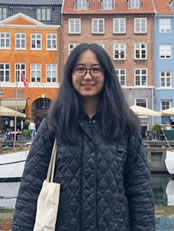 |
Dr. Yawei Zhao is a lecturer in the Department of Geography at the University of Manchester. Prior to her current position, she completed her doctoral studies in human geography at the University of Calgary and obtained her master’s degree in human geography from McGill University. She is a fellow of the Royal Geographical Society, and she serves as an elected board member of the Urban Geography Specialty Group of the American Association of Geographers. |
|
| |
|
|
| |
My research intersects digital geographies, sustainability studies, and urban studies. I am currently working on a British Academy-funded project investigating the expansion of data centers in China, a trend driven by the increasing demand for cloud computing. This research explores how the construction of these energy-intensive digital infrastructures has been shaped by the aspirations of less developed regions as well as the country’s renewable energy boom. This project stems from my enduring interest in the impacts of digital technologies on urban life and governance. My article in Journal of Urban Affairs, for example, explores the role that lifestyle migrants play in urban changes, facilitated by digital tools and platforms. I recognize three forms of place-making (creative, transgressive, and aesthetic place-making) in the article, which have forged connections between the online and offline worlds and given rise to ‘lifestyle-oriented urbanization’. In 2023, I co-organized a workshop at the University of Manchester, funded by the Manchester-Melbourne-Toronto research fund, to discuss how the digitalization of housing data and service provision has exacerbated housing affordability issues. While my research covers diverse topics, the unique challenges of economically disadvantaged cities remain a constant thread throughout my career. In my recent article in Environment and Planning E: Nature and Space, I analyze the mass demolition in a small Chinese city caused by China’s Ecological Civilization. While such demolition resembles a degrowth strategy in its rhetoric and short-term effects, I argue that it actually functions as a spatio-temporal fix enabling the local government to address both ecological and political imperatives while reconfiguring growth coalitions. |
|
| |
|
|
|
| |
| |
|
|
|
| |
 |
Dr. Colleen Chiu-Shee (裘熹) is Assistant Professor in the Department of Urban and Regional Planning at University of Illinois Urbana-Champaign. From May 2022 to July 2023, she was Assistant Professor in the Department of Urban Planning and Design at the University of Hong Kong and Assistant Director of HKU’s Master of Urban Design program. Since 2022, an Associate at National University of Singapore’s Asia Research Institute (ARI), after working as a Postdoctoral Fellow in ARI’s Asian Urbanisms Cluster. From 2020 to 2021, she served as a Global Public Voice Fellow for the Global Racial Justice Initiative at Cornell University’s Mario Einaudi Center for International Studies. She practiced architecture, urban design, and community planning in China and the U.S., before receiving Ph.D. in Urban and Environmental Planning and Design from Massachusetts Institute of Technology’s Department of Urban Studies and Planning. |
|
| |
|
|
| |
My research concerns “eco” and “smart” urban futures—a topic that emerged during my fieldwork in China, Southeast Asia, and North America. I explore innovative spatial and sociopolitical interventions that seek to transcend preexisting paradigms to promote environmental sustainability and social justice. My dissertation, titled Ecological City Design and Planning: How China Expands Urban Ecology, Institutional Learning, and Cultural Shifts through the Evolving Eco-Developments, examines how developing countries forge adaptive capacity under the pressure of environmental degradation and urbanization through the lens of eco-city experiments in China. I have also collaborated to develop research projects that connect scholarship in North America with practice in Asia. These projects have examined a range of topics, including housing development, urban informality and land politics, land reclamation and coastal development, masterplanned new cities, collective governance and urban resilience, climate adaptation in vulnerable communities, and digital technologies for pandemic management. China has been a crucial site for theorization in these studies. For example, the paper “A Burden or A Tool? Rationalizing Public Housing Provision in Chinese Cities” (Housing Studies, DOI: 10.1080/02673037.2019.1667490) situates China’s public housing policy in global debates about housing affordability in the mixed economy of welfare, analyzes central-local structural barriers in the political system, and identifies pathways to equitable, inclusive housing provision. Another paper “Ending Gated Communities: the Rationales for Resistance in China” (Housing Studies, DOI: 10.1080/02673037.2021.1950645) engages international debates about gated communities and provides a nuanced portrayal of the conflicting and conflicted rationales for gating/ungating in China. The battle over gated communities is emblematic of China’s broader political struggle, as well as dilemmas in the private production of public goods. My work continues investigating similar concepts and practices across cultures and geographies to reveal the global mobilities of ideas and policy innovation |
|
| |
|
|
|
| |
 |
Dr. Wang Kun obtained his Ph.D. from The University of Hong Kong in 2019 under the supervision of Prof. Shenjing He. He served as a postdoctoral research fellow at The Chinese University of Hong Kong from 2019 to 2021, collaborating with Prof. Xujiang and Dr Calvin King Lam Chung. In 2021, he joined the Guangzhou Institute of Geography as a Research Associate Professor and then was included in the "Hundred Talents Program" initiated by Guangdong Academy of Sciences. He served as a Visiting Associate Professor at The University of Hong Kong in 2022.
汪坤 2019年获得香港大学博士,导师何深静教授。2019-2021任职香港中文大学博士后研究员, 合作导师为徐江教授、Calvin King Lam Chung博士。2021年入职广州地理研究所,任职特聘副研究员, 入选“广东省科学院百人计划D类”。2022年期间曾任香港大学访问副教授。
|
|
| |
|
|
| |
Dr. Wang Kun’s research focuses on the intersection of geographies of waste, political ecology, and post-structuralist geography. His major research works have been published in reputational journals in geography or urban/regional studies. His ambition is to infuse nuanced perspectives into the forefront of international discourse on waste and environmental studies by intertwining these debates with the intricacies of vernacular socio-cultural fabrics and the dynamism of China's politico-economic transition. With a focal point on the illicit e-waste recycling epicentres in China, his article published in Annals of the American Association of Geographers theorizes how nonhuman agency plays an instrumental role in the making of plural environmental justice realities. This work contrasts distributional and capability perspectives on environmental justice that emerge from heterogeneous associations between human and nonhuman entities. In another piece published in Urban Geography, he engages China’s campaign-style environmental governance with the multiple governmentality thesis, scrutinizing the intersection of sovereign environmentality with neoliberal, disciplinary, and truth-based environmentalities; His exploration of the material circulations and geographic articulations between "Global Production Networks" and "Global Destruction Networks" from a cultural economic approach earned him the prestigious Ashby Prize 2022, an accolade awarded for the most innovative paper in the EPA journal; More recently, his contribution to the Handbook on China’s Environmental Governance, edited by Fangzhu Zhang and Fulong Wu, involves an examination of the evolving dispositifs of China's environmental governance during its political-economic transition from state-entrepreneurialism to state-led ecological civilization. He received the Youth Fund of the National Natural Science Foundation of China for a project titled "Environmental Governance of e-waste Pollution: An urban political ecology perspective". He serves on the Junior Editorial Board of Tropical Geography (Chinese) and acts as a journal reviewer for Urban Studies, International Journal of Water Resources Development, Critique of Anthropology, and leading Chinese geographical journals. 汪坤博士的研究集中在废弃物地理、政治生态学和后结构主义地理学的交叉领域。他的主要研究成果已在地理学或城市/区域研究的知名期刊上发表。他致力于介入国际废物和环境研究的理论前沿,并阐述中国政治经济转型与地方尺度的特定社会文化本底的动态交织如何与这些国际理论对话。以中国非法电子废物回收中心为研究焦点,他在《Annals of the American Association of Geographers》上发表的论文,尝试概念化“非人行动者(nonhuman actors)”在构建环境公正的多元事实中所发挥的关键作用。此项工作通过追踪电子垃圾拆解的行动者-网络,阐释了形形色色的非人行动者及其物质性(如电子废物的资源性、商品性、污染性、健康毒性等)与多元人类利益相关者(如国际NGOs组织、媒体、学者、本地拆解者等)之间如何形成不同的“异质性联结(heterogeneous association)”,共同构筑了充满争议和冲突的环境正义世界;’在另一篇发表在《Urban Geography》上的文章中,他将中国的运动式环境治理带入与多元治理术理论(multiple governmentalities)的对话,审查了“主权治理术”如何与规训式、新自由式、真理式的环境治理术相互构成、相互配合,使得中央实现对地方环境的“再控制”;此外,他发展了文化经济地理学的分析方法,探索了"全球生产网络"和"全球拆解网络"之间的经济联系、价值流通、物质循环和地理耦合,获得了国际上人文地理与城市区域研究领域享有声誉的Ashby Prize 2022 (Environmental and Planning A: Economy and Space期刊最具创新性论文奖,中国内地及香港地区首次获奖);最近,在张芳珠和吴缚龙教授编辑的《Handbook on China's Urban Environmental Governance》中,他考察了中国政治经济框架由国家企业主义向国家主导的生态文明转型过程中中国环境治理模式的变化,以及此转型过程对于“废物之城”的社会-生态系统演变的影响。他获得了国家自然科学基金青年基金项目“城市政治生态学视角下的电子废物污染环境治理研究”,担任热带地理青年编委,并在Urban Studies,Critique of Anthropology,Humanities and Social Sciences Communications,International Journal of Water Resources Development,以及中文核心地理学期刊担任审稿人。 |
|
| |
|
|
|
| |
 |
Dr. Minhua Ling is an Associate Professor of Anthropology in the Department of Anthropology and Sociology at the Geneva Graduate Institute (staring from September 2023). Prior to moving to Switzerland, Ling taught at the Chinese University of Hong Kong as Assistant Professor (2013 – 20) and Associate Professor with tenure (2020-22) in its interdisciplinary Centre for China Studies. Ling was a 2022-23 residential fellow at the Institute for Advanced Study in Princeton and a 2016 fellow at the Brown International Advanced Research Institute. She holds a BA in English Literature from Fudan University, and an MA in International Relations and a PhD in Anthropology from Yale University.
凌旻華博士現為日內瓦高研院人類學社會學系副教授,之前任教於香港中文大學,在其跨學科的中國研究中心先後擔任助理教授(2013-20)和副教授 (2020-22),2022-23年於普林斯頓高等研究院擔任研究員,亦為2016年布朗大學國際高等研究所成員。她先後畢業於復旦大學(英美文學學士)和耶魯大學(國際關係碩士和人類學博士) |
|
| |
|
|
| |
As a sociocultural anthropologist, Ling examines through intensive ethnographic research the processes and ramifications of migration and urbanization to explore issues including mobility, identity, inequality, sustainability, governance, and state-society relations with a regional focus on China. Besides single-authored research articles in international journals such as China Quarterly, China Journal, Anthropological Quarterly, Urban Studies, Position: Asia critique, and HAU: Theory of Ethnographic Theory, her book The Inconvenient Generation: Migrant Youth Coming of Age on Shanghai’s Edge (Stanford University Press, 2020) offers the first longitudinal monograph of China’s second-generation rural-to-urban migrants and reveals the making of inequality in everyday practices of urban inclusion and exclusion in late-socialism. She is currently working on multiple projects exploring the intertwined themes of mobility, inequality, ethics, and sustainability, including a book project to explore socioecological transformation in rural China after three decades of internal migration and state-led urbanization.
作為社會人類學學者,凌博士致力於通過深度田野調查來研究人口遷移與城市化的過程及其影響,探討包括身分、流動性、不平等、可持續性、城市治理及國家社會關係等在內的多項議題。除了在國際學術期刊上發表的多篇研究論文之外,她於2020年在斯坦福大學出版社出版的The Inconvenient Generation: Migrant Youth Coming of Age on Shanghai’s Edge是首部長期追蹤進城務工子女從學校走向勞務及消費市場的成年軌跡的學術論著,揭示了社會主義後期城市化進程中固化不平等的日常實踐及其對青少年身分認同的影響。她目前著手進行有關流動性、不平等、社會倫理與可持續性議題的多個交叉課題,其中包括探討中國民工潮和城鎮化三十年後農村社會生態變遷的著書計畫 |
|
| |
|
|
|
| |
 |
Nick R. Smith is an Assistant Professor of Architecture and Urban Studies at Barnard College, Columbia University. He is also a faculty affiliate at the Columbia University Weatherhead East Asian Institute. Prior to joining Barnard, Smith was a founding faculty member of the Urban Studies Programme at Yale-NUS College, Singapore, where he was also affiliated with the Asia Research Institute and the Lee Kuan Yew School of Public Policy. Smith holds an A.B. (East Asian Studies), A.M. (Architecture), and Ph.D. (Urban Planning) from Harvard University. |
|
| |
|
|
| |
Smith’s research addresses the politics of urbanization and the ways in which the built environment matters to social collaboration and conflict. He is an interdisciplinary scholar of global urban studies with a geographic focus on Asia, and much of his work explores urban development and planning in contemporary China. This includes his recent book, The End of the Village: Planning the Urbanization of Rural China (University of Minnesota Press, 2021), which investigates China’s contested implementation of a new approach to urban–rural relations over the last twenty years. The End of the Village represents the culmination of more than a decade of ethnographic research in peri-urban villages across China, with a particular emphasis on the rapidly growing city of Chongqing. Smith is currently at work on a new book that revisits the origins of China’s rapid urbanization through a history of the Shekou Industrial Zone, which served as a site of experimentation for new urban development practices during the 1980s. Other recent contributions to China urban studies include journal articles on the domestic urban drivers of the Belt and Road Initiative (Urban Geography, 2022), the intersection of planning powers and property rights (Journal of Planning Education and Research, 2021), the use of graffiti as a means of contesting urban redevelopment (Antipode, 2020), the creation of grassroots community organizations (International Development Planning Review, 2019), and the rise of agricultural specialization in peri-urban villages (Journal of Agrarian Change, 2019). New projects include a locational study of village-based agricultural specialization, a comparative investigation of the origins of Asia’s urban villages, and an exploration of socio-spatial fragmentation in peri-urban Jakarta. Smith’s research has been supported by agencies such as the US Fulbright Program, the Wenner-Gren Foundation, and the National Science Foundation. Smith has been a member of the UCRN Advisory Board since 2015. |
|
| |
|
|
|
| |
 |
Dr. Yushu Zhu is an Assistant Professor of Urban Studies and Public Policy at Simon Fraser University (SFU). Yushu was trained as a human geographer at Sun Yat-Sen University in China and held a Ph.D. in Architecture from the University of Illinois at Urbana Champaign. Following her Ph.D. studies, Yushu held post-doc positions in the Spatial Structures in the Social Sciences (S4) program at Brown University and at the Institute of Asian Research at the University of British Columbia (UBC). Before joining SFU, Yushu also worked as a survey research manager at the Asia Pacific Foundation of Canada, Canada’s leading research institute on Canada-Asia relations. As a research associate of both SFU David Lam Centre and UBC Centre for China Research, Yushu maintains strong intellectual connections and professional networks with scholars of urban China research and will continue to expand the connections. |
|
| |
|
|
| |
Trained as an urban geographer, Yushu critically engages interdisciplinary perspectives to examine housing and community issues in both China and Canada as it relates to neoliberalization, social inequality, urban (re)development, and civic engagement. Her research seeks to understand the institutional and structural forces driving socio-spatial stratifications, as well as the roles of housing in shaping social relations, civic behaviours, health and wellbeing. Yushu is a recipient of multiple grants from Canada’s Social Sciences and Humanities Research Council (SSHRC) and the Lincoln Institute of Land Policy. Her work has appeared in prominent academic outlets in the fields of Geography, Urban Studies, Sociology, and Public Health.
In her recent project on urban China, Yushu examined neighbourhood restructuring (e.g. gentrification) and community experiences as a result of changing urban renewal policies in Guangzhou. Her publication in Cities (2022) introduced the concept, “state-embedded gentrification,” to understand the spatiality of gentrification which she argued manifests the spatial selectivity of the hegemonic state in Chinese cities. Her other publication in Urban Geography (2023) examined how different modes of UR (wholesale redevelopment vs micro renewal) disrupt or reconstruct the sense of home for affected residents in urban China through different economic, social and psychological mechanisms.
Earlier, Yushu conducted pioneering work in understanding the changing meaning of neighbourhood in China from a locale of social intimacy to a place imbued with personal symbolic meanings in the context of dramatic urban transformation. This line of research highlights the importance of the built environment to the sense of place. The research has led to widely cited publications in Urban Studies and Urban Geography. Built upon the work on home and belonging, Yushu also examined how place attachment, local social relations, and neighbourhood contexts factor into neighbourhood engagement/activism. By bridging the place-making framework and the social-capital framework, her research demonstrates that neighbourhood communal space serves as a nurturing ground for neighbourhood activism in China. Her research in this area was published in Environment and Behavior, Habitat International, and the Journal of Urban Affairs.
|
|
| |
|
|
|
| |
 |
Chen Zifeng (陈梓烽) is an associate professor of urban geography in the School of Geography and Planning, Sun Yat-sen University. Prior to the current position, he worked as a post-doctoral fellow at Department of Urban Planning and Design, the University of Hong Kong. Bachelor’s degree in urban planning from Sun Yat-sen University, Master’s degree in human geography from Peking University, and Doctoral degree in urban planning from the University of Hong Kong.
我目前在中山大学地理科学与规划学院担任副教授。此前,我曾在香港大学城市规划及设计系从事博士后工作。我分别在中山大学、北京大学、香港大学获得城市规划本科学位、人文地理学硕士学位、城市规划博士学位。 |
|
| |
|
|
| |
My research interests are in activity-travel behavior and the spatial structures of cities/city-regions. I’m particularly interested in analyzing how societal changes, e.g., market-oriented economic transition in China, new policies to promote regional integration, shape people’s everyday experience and (un)equal access to opportunities in cities. For example, I have published several papers on the associations between socioeconomic differences and urban residents’ spatial accessibility to service facilities as well as opportunities of cross-group encounters, which were measured in terms of peoples’ activity spaces using human mobility data (e.g., activity dairies and cellphone data). I’m also interested in delineating functional urban areas (FUA) in mega-city regions of China using human mobility data, with publications highlighting the necessity, methodology, and policy implications of FUA delineation. Some of these papers were published in important journals such as Annals of the American Association of Geographers, Computers, Environment and Urban Systems, Environment and Planning B, and Urban Studies, and led to academic awards such as Best Paper of the 15th International Congress of Asian Planning Schools Association in 2019.
I’m currently holding or participating in research projects related to activities within mega-city regions in China, funded by National Natural Science Foundation of China as well as Department of Science and Technology of Guangdong Province.
|
|
| |
|
|
|
| |














